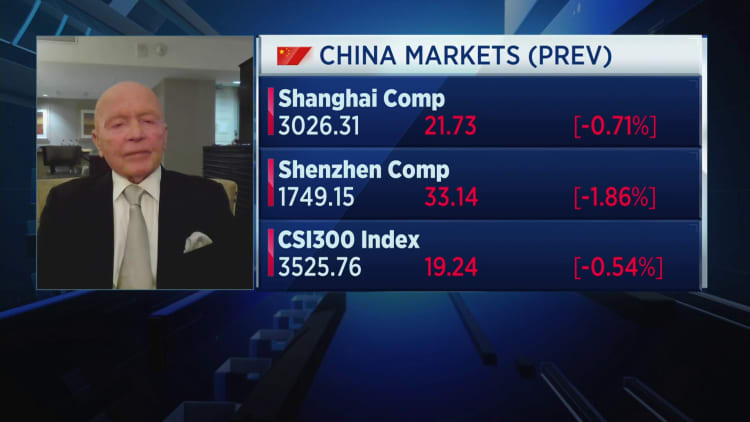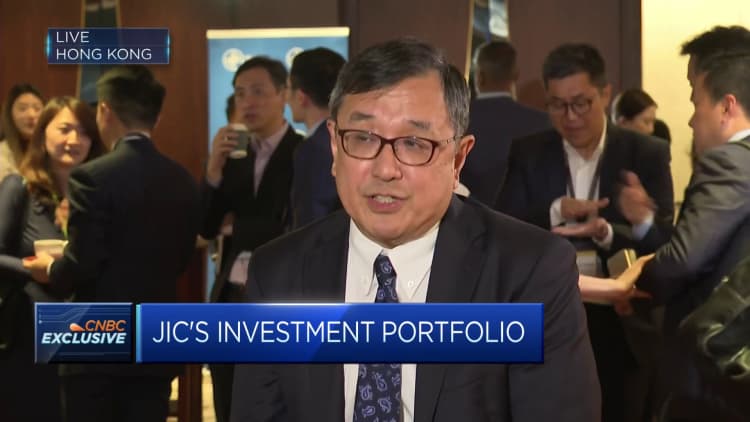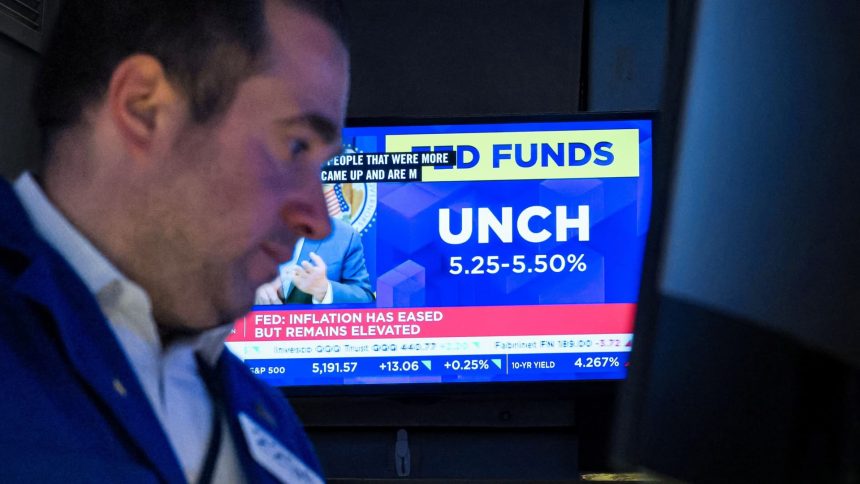U.S. stocks have “limited upside” from here, given the macroeconomic backdrop — and investors should be looking for better opportunities elsewhere, according to Goldman Sachs Asset Management.
The U.S. economy has been surprisingly resilient in the face of the Federal Reserve’s aggressive monetary policy tightening over the last two years, defying expectations of a 2023 recession.
Though GSAM’s base case is for the Fed to engineer a soft landing and for the U.S. economy to avoid recession, James Ashley, head of international market strategy, told CNBC on Wednesday that if a recession were to come, it would be this year.
“The Fed only began to hike in March of ’22, so when we’re talking about recession risks in 2023, that would have assumed a very rapid passthrough from the transmission of monetary policy into the real economy. In other words, it was premature,” Ashley said.
“Monetary policy typically operates with a lag of about two years so if you’re going to see that recession — and it is an ‘if’ statement, the base case is we don’t get a recession — but if you were ever going to get a recession, it would be ’24, not ’23.”
The Fed held interest rates steady at a target range of 5.25-5.5% at its March meeting, and markets are pricing a first 25 basis point cut in June as the central bank begins to unwind its restrictive monetary policy in light of falling inflation a slowing economy.
Ashley noted that for stock markets, “a little bit of weakness is your friend” as the associated disinflationary pressure gives the Fed the capacity to begin cutting rates, but with the market having priced in a lot of the expected policy loosening, GSAM still believes the recent bull run may be running out of road.
“We do tend to think that U.S. equities right now are fairly valued but there’s limited upside at these valuations. The better opportunities might be in other markets,” he concluded.
India
Where emerging markets are concerned, the Wall Street giant’s asset management arm sees India as a “strategic long-term growth story,” Ashley said.
“Where we see many other economies beginning to slow for both secular and indeed cyclical reasons, in India’s case, we see the start of a very significant upswing,” he added.
“We’re looking at an economy here that could be growing at double-digit nominal GDP rates for the foreseeable future.”

Given the rally already enjoyed in Indian markets of late, Ashley acknowledged that one could not argue that the country’s stocks are “cheap” right now, but insisted there was still “significant upside based on that growth story.”
“How do you play that? I think there’s an across-the-board story. It’s not about one particular sector, and if you look at the small and mid-caps in particular, there’s a huge opportunity to generate alpha in that market,” he added.
Japan
In contrast to most central banks across major economies, which are deciding when to begin cutting rates, the Bank of Japan last week hiked them for the first time in 17 years, finally ending its experiment with negative rates and unconventional easing tools that were aimed at reflating the world’s fourth-largest economy.
Japanese stocks were a strong performer in 2023 and into this year, but Ashley argued that this significant monetary policy shift means they have more room to run.

“Japan is the one major economy where inflation is not a problem, it’s a solution. It’s a solution to a 30-year-old problem,” he said, adding that the central bank’s goal now is “not choking off inflationary pressures” but “embracing them.”
“What that means from an equity perspective is that firms suddenly have more pricing power. So when we look at developed markets right now, in our view, Japan is the most attractive both on the short-term and indeed the long-term, so there’s significantly further to go, we think,” he concluded.
Read the full article here




